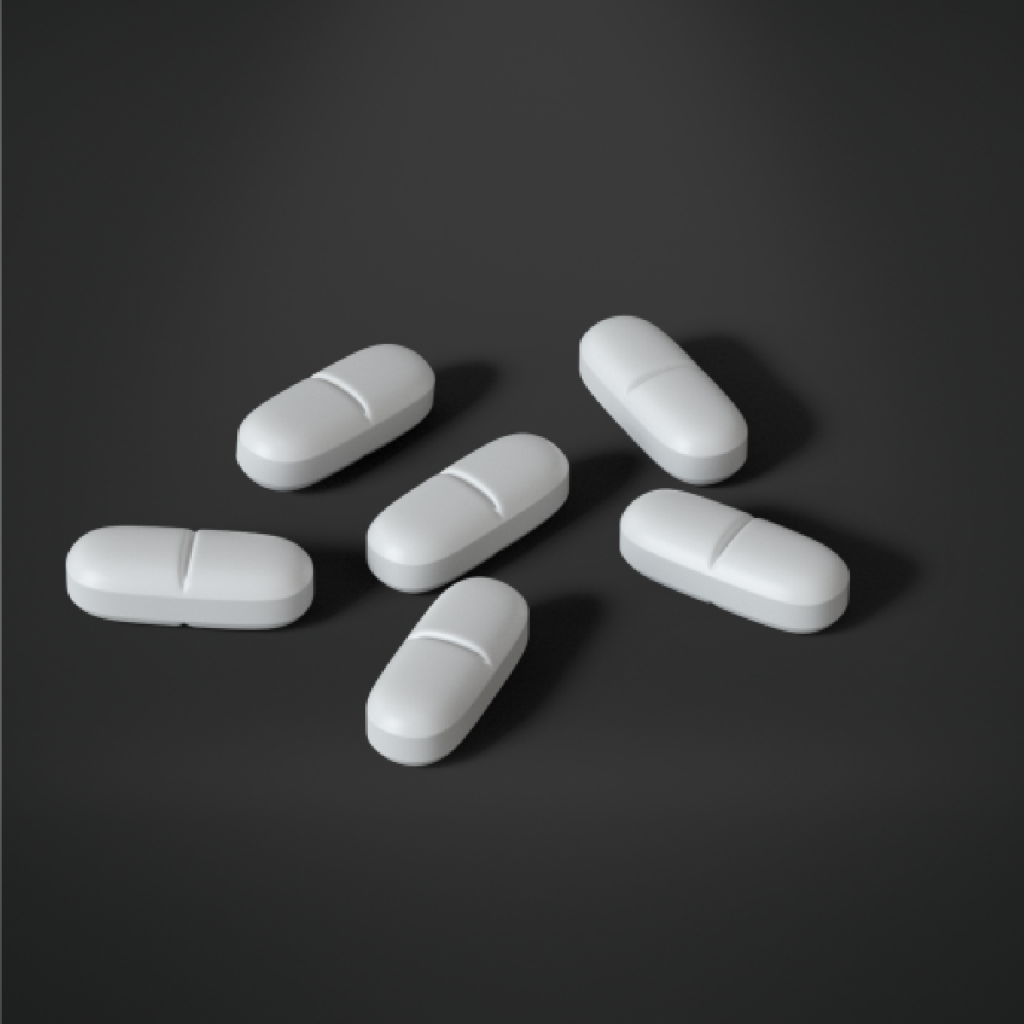Can NMN Improve Heart Health?
08/08/2023

NMN, or nicotinamide mononucleotide, is a naturally occurring molecule that has gained attention for its potential benefits on various aspects of health and aging. In recent years, researchers have been particularly interested in exploring the connection between NMN and heart health. In this article, we will take a closer look at the role of NMN in the body, its potential impact on cardiovascular function, and how you can incorporate it into your diet.

Understanding NMN and Its Role in the Body
NMN, also known as nicotinamide mononucleotide, is a molecule that plays a crucial role in several biological processes. It is a precursor to another molecule called NAD+, which stands for nicotinamide adenine dinucleotide. NAD+ is involved in various cellular functions, including energy production, DNA repair, and gene expression.
What is NMN?
NMN is a form of vitamin B3, also known as niacin. It is found naturally in foods such as broccoli, cabbage, avocado, and edamame. NMN is also produced within the body as an intermediate step in the synthesis of NAD+.
Broccoli, one of the natural sources of NMN, is a cruciferous vegetable known for its high nutritional value. It contains not only NMN but also other essential vitamins and minerals that contribute to overall health. Consuming broccoli regularly can provide a significant boost to your NMN levels, supporting the proper functioning of your body.
Cabbage, another food rich in NMN, is a versatile vegetable that can be enjoyed in various dishes. It is not only a great source of NMN but also provides dietary fiber, vitamin C, and other beneficial compounds. Including cabbage in your diet can help ensure an adequate supply of NMN for your body's needs.
Avocado, known for its creamy texture and rich taste, is not only a delicious fruit but also a source of NMN. Avocado is packed with healthy fats, fiber, and various vitamins and minerals. Adding avocado to your meals can contribute to maintaining optimal NMN levels and supporting overall well-being.
Edamame, young soybeans, are a popular snack and ingredient in many cuisines. They are not only tasty but also a good source of NMN. Edamame is rich in protein, fiber, and other essential nutrients, making it a nutritious addition to your diet. Enjoying edamame as a snack or incorporating it into your meals can help ensure a steady supply of NMN.
How Does NMN Function in the Body?
When we consume foods containing NMN or take NMN supplements, it is absorbed into the bloodstream and transported to cells throughout the body. Once inside the cells, NMN is converted into NAD+, which is essential for various biochemical reactions.

Within the cells, NMN undergoes a series of enzymatic reactions to form NAD+. This conversion process is tightly regulated and ensures that the body maintains adequate levels of NAD+ for its functions. NAD+ serves as a coenzyme, meaning it works alongside enzymes to facilitate chemical reactions within the body.
NAD+ is involved in the production of ATP (adenosine triphosphate), the molecule responsible for providing energy to cells. Through a process called cellular respiration, NAD+ helps convert nutrients from food into ATP, which fuels various cellular activities. Without sufficient NAD+, the energy production process would be compromised, leading to decreased energy levels and impaired cellular function.
In addition to energy production, NAD+ plays a crucial role in activating enzymes involved in DNA repair and maintenance. DNA damage can occur due to various factors, including environmental stressors and natural aging processes. NAD+ helps ensure that damaged DNA is repaired promptly, maintaining the integrity of the genetic material and preventing potential health issues.
Furthermore, NAD+ acts as a signaling molecule that regulates gene expression and cellular processes involved in aging and disease. It interacts with proteins called sirtuins, which are involved in various biological pathways, including those related to longevity and cellular stress response. NAD+ levels have been shown to decline with age, and maintaining optimal levels of NAD+ through NMN supplementation may support healthy aging and overall well-being.
In conclusion, NMN is a vital molecule that serves as a precursor to NAD+, playing a crucial role in energy production, DNA repair, and gene expression. Consuming NMN-rich foods or taking NMN supplements can support the body's NAD+ levels and contribute to various aspects of health and well-being.
The Connection Between NMN and Heart Health
While more research is needed to fully understand the impact of NMN on heart health, preliminary studies have shown promising results.
The Role of NMN in Cardiovascular Function
The cardiovascular system, which includes the heart and blood vessels, is responsible for the delivery of oxygen and nutrients to tissues throughout the body. Maintaining optimal cardiovascular function is crucial for overall health and well-being.
One of the key factors in maintaining cardiovascular health is the level of NAD+ (nicotinamide adenine dinucleotide) in the body. NAD+ is a coenzyme that plays a vital role in various cellular processes, including energy production and DNA repair. However, as we age, NAD+ levels decline, which can have a negative impact on cardiovascular function.
Studies have suggested that NAD+ depletion may contribute to age-related declines in cardiovascular function. By boosting NAD+ levels through NMN supplementation, it is theorized that the cardiovascular system may function more efficiently, leading to improved heart health.
Recent Studies on NMN and Heart Health
Several recent studies have investigated the potential benefits of NMN on heart health. One study conducted on mice found that NMN supplementation improved cardiovascular function and protected against heart failure caused by aging. The study showed that NMN increased the levels of NAD+ in the heart, which in turn improved the heart's ability to pump blood effectively.
Another study on mice showed that NMN supplementation improved endothelial function, which is essential for maintaining healthy blood vessels. Endothelial cells line the inner surface of blood vessels and play a crucial role in regulating blood flow and preventing the formation of blood clots. The study found that NMN enhanced the production of nitric oxide, a molecule that helps relax and dilate blood vessels, leading to improved endothelial function.
It is important to note that these studies were conducted on animals, and further research is needed to determine the effects of NMN on heart health in humans. However, these initial findings are encouraging and warrant further investigation.
Additional research is also exploring the potential mechanisms through which NMN may improve heart health. One study suggests that NMN may activate a protein called SIRT1, which has been shown to have protective effects on the heart. SIRT1 is involved in various cellular processes, including DNA repair, inflammation regulation, and energy metabolism. By activating SIRT1, NMN may help maintain the integrity and function of heart cells, reducing the risk of cardiovascular diseases.
Furthermore, NMN supplementation may also have indirect benefits for heart health. Some studies have shown that NMN can improve metabolic function and increase energy production in cells. By enhancing cellular metabolism, NMN may help reduce the risk factors associated with heart disease, such as obesity, diabetes, and high cholesterol levels.
While the research on NMN and heart health is still in its early stages, the potential benefits are promising. As scientists continue to investigate the effects of NMN on the cardiovascular system, we may gain a better understanding of how this compound can be used to improve heart health and prevent age-related decline in cardiovascular function.
Potential Benefits of NMN for Heart Health
Although more research is needed to confirm the specific benefits of NMN for heart health, several mechanisms have been proposed based on its properties.
Improving Blood Flow with NMN
One potential benefit of NMN on heart health is its ability to improve blood flow. NAD+ plays a crucial role in maintaining the health of blood vessels by promoting the production of nitric oxide, a molecule that helps relax blood vessels and improve blood flow.
By increasing NAD+ levels through NMN supplementation, it is theorized that blood vessels may function more effectively, leading to improved overall cardiovascular function.
NMN and Heart Disease Prevention
Heart disease is a leading cause of death worldwide, and preventive strategies are crucial for reducing its prevalence. Some evidence suggests that NMN may have protective effects against heart disease.
By promoting DNA repair and cellular health, NMN may help prevent the accumulation of DNA damage and other age-related changes that contribute to heart disease. Additionally, the potential ability of NMN to improve cardiovascular function and blood vessel health may further reduce the risk of heart disease.
How to Incorporate NMN into Your Diet
While NMN is naturally present in certain foods, it is difficult to obtain sufficient amounts through diet alone. However, there are ways to incorporate NMN into your daily routine.
Natural Sources of NMN
Some foods contain NMN, although in relatively small amounts. Broccoli, cabbage, avocado, and edamame are rich in NMN. Including these foods in your diet can provide a natural source of NMN.
However, it is important to note that the NMN content of these foods may vary, and cooking or processing methods can affect the NMN levels. Therefore, it may be challenging to rely solely on dietary sources to obtain optimal levels of NMN.
NMN Supplements: Pros and Cons
NMN supplements are becoming increasingly popular as a convenient way to boost NMN levels. These supplements are available in capsule or powder form, and they can provide a reliable source of NMN.

One of the advantages of NMN supplements is that they allow for precise dosing. This can be particularly beneficial for individuals who require higher levels of NMN or have specific health concerns.
However, it is crucial to choose high-quality supplements from reputable manufacturers. Additionally, it is always a good idea to consult with a healthcare professional before starting any new supplement regimen.
Risks and Considerations of NMN Supplementation
While NMN is generally considered safe for consumption, there are a few potential risks and considerations to be aware of.
Potential Side Effects of NMN
In general, NMN is well-tolerated, and side effects are rare. However, some individuals may experience mild digestive issues, such as stomach discomfort or nausea, when taking NMN supplements.
If you experience any adverse effects while taking NMN supplements, it is recommended to reduce the dosage or discontinue use and consult with a healthcare professional.
Who Should Avoid NMN?
Although NMN is generally considered safe, certain individuals should exercise caution or avoid NMN supplementation altogether.
Pregnant or breastfeeding women, individuals with certain medical conditions, and those taking specific medications should consult with a healthcare professional before starting NMN supplementation.
Conclusion
While the connection between NMN and heart health is still being explored, early research suggests that NMN may have potential benefits for cardiovascular function. By increasing NAD+ levels, NMN may improve blood vessel health, enhance cardiovascular function, and help prevent heart disease.
While NMN occurs naturally in some foods, supplementation may be necessary to achieve optimal levels. NMN supplements are a convenient and reliable way to increase NMN intake, although it is always essential to choose high-quality products and consult with a healthcare professional.
As research on NMN and heart health continues to unfold, further studies are needed to fully understand its effects and potential benefits. In the meantime, maintaining a balanced diet, engaging in regular physical activity, and adopting other heart-healthy habits remain crucial for overall cardiovascular well-being.

 Back to Blog
Back to Blog